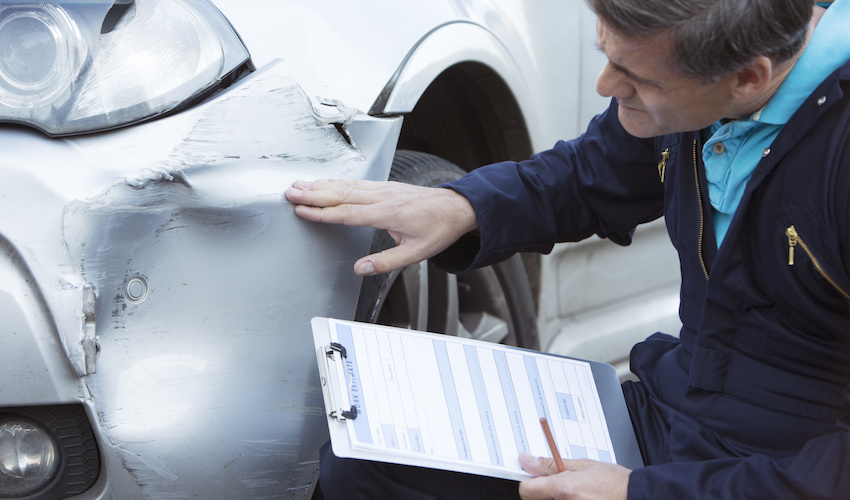
Should my car be totaled?
Why you might not want your crashed car back.
By Cherise Threewitt, Contributor, Car-ED.com | Apr 2018
What does “totaled” even mean?
If you’ve never been involved in a serious car crash before, consider yourself lucky. Not all crashes result in injuries, but all crashes are a headache to deal with, even if your insurance company is one of the better ones. Navigating the process and the paperwork for the first time is always stressful, but it helps to be familiar with the terminology. Put simply, your car is “totaled” if the insurance company decides it is a total loss. In other words, it will cost more to fix your car than the car is worth.
Why would an insurance company total my car?
First, it’s important to note that there are thresholds for a total loss that may vary by state or by insurance company. If your insurance policy states that damage equaling 75 percent of the car’s value is a total loss, then $8,000 of damage to a car worth $10,000 will probably be totaled.
After your accident, the insurance company will assign a value to your car, based on its age, mileage, condition, and approximate resale value. The approximate resale value is determined based on published sources (like Kelley Blue Book) and sales and listings (or “comps”) of similar vehicles near you. The insurance company may send out a claims adjuster to look at your car and determine its condition, but not always.
Minor damage
Dents, dings and scratches are perfectly safe to repair, along with other easily replaceable parts like headlight or taillight lenses, blown tires, bent wheels, and cracked windows. Bumper covers are commonly replaced after a crash, but if the actual bumper (the metal piece underneath the plastic cover) is damaged, costs can start to add up quickly. Other borderline repairs, edging into moderate or serious territory, include doors (if they don’t open), rear quarter panels (since they are large and require more specialized auto body repair knowledge), airbags, and anything under the hood. Most of these parts can be repaired or replaced without compromising the vehicle’s structural integrity or seriously affecting its value. However, a lot of small repairs can still add up to a total loss, especially if your car has expensive parts like fancy LED headlights or carbon fiber exterior accents.
Serious damage
If the crash results in a broken axle, dented or tweaked pillar (the parts that “hold up” the roof, including the front windshield frame, the part between your front and rear doors, and the rear roofline), or extensive damage to the drivetrain or under-hood components, you could be looking at a total loss. Frame damage, which is common in cars that have rolled, flipped, or suffered another hard impact, is often immediately visible, but sometimes requires a more trained eye. Frames can be “pulled out” or “straightened” with the use of special equipment, and your car might look fine after some expensive body work, but this repair compromises the car’s structural integrity for good. If you bend a metal spoon, it might still be usable, but it will always be weaker where you bent it.

Do I have any leverage?
So, are you hoping that the insurance company will pay to fix your wrecked car? Unless your state has strict laws about thresholds for a total loss, your insurance company might be willing to negotiate. Remember, an insurance company really doesn’t want to insure a car that is unsafe, because if you get into another accident, the situation will be even more complicated. Consider this: how would an insurance company compensate you or your passengers for injury if they knew the car was structurally unsound and its occupants were at a higher risk of getting hurt? You don’t want to find out from a hospital bed. However, if the damage is mostly cosmetic, your best bet is to try to show that the car is worth more than the insurance company says it is by showing “comps,” or listings of comparable vehicles. Unless your vehicle is rare or special in some way (like a highly-sought-after limited edition), this probably won’t work.
Another possible scenario: the insurance company is planning to fix your car and you would prefer for it to be totaled. You can argue that your car will now be worth much less than it was before, since you’ll have to disclose the repairs if you try to sell it or trade it in. Your best bet here is to argue that the car is worth less than the value assigned to it by the insurance company, again, by providing comps. The insurance company might agree that it is not worth it to fix the car at its lower value. Consider, though, that if this strategy works, your insurance settlement will probably be lowered to reflect the car’s lowered value.
In short, whether or not your car is totaled often, but not always, depends on whether or not the damage is mostly cosmetic or mostly structural. Repairs to the car’s structure generally leave it weaker than it was before, and most buyers are better off if the car is totaled.